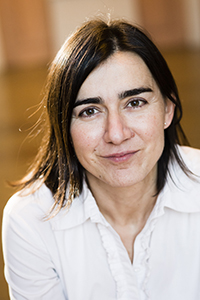 Lecture summary: Recent literature on human rights has proposed to go beyond the dualism of essentialist versus historicist conceptions of human rights. It is argued that ‘the history of human rights’ has to be expanded as ‘to include a moral history of the century after the Enlightenment’ (Hoffmann).
Lecture summary: Recent literature on human rights has proposed to go beyond the dualism of essentialist versus historicist conceptions of human rights. It is argued that ‘the history of human rights’ has to be expanded as ‘to include a moral history of the century after the Enlightenment’ (Hoffmann).
This lecture highlights as well the inquiry of continuities within the epistemological framework of human rights and natural rights. I am employing for this purpose historical understandings of natural rights and the role they played in the history of international law. The theologian-jurist Francisco de Vitoria and the jurist-theologian Hugo Grotius, the so-called fathers of the discipline of international law, and later other authors, such as John Locke, became famous for detaching natural subjective rights from their original roots in individual moral theology and relocating them in the context of encounters between peoples.
The fact that in doing so they contributed to a new form of natural law and arguably founded international law meant that their moral-epistemological endeavours bore significant fruit.
Mónica García-Salmones Rovira is Adjunct Professor of International Law at the University of Helsinki, where she teaches in the area of international law and philosophy. She is also Research Fellow at the Erik Castrén Institute of International Law and Human Rights and in 2017/ 2018 Osk. Huttunen Visiting Fellow at Clare Hall & Faculty of Law, University of Cambridge. She is the author of The Project of Positivism in International Law winner of the European Society of International Law Book Prize 2015. More recently her research has focused in the early history of international law, with a focus in the study of the conceptual, philosophical, and historical continuities between modern international law and previous theological theories. Together with Paolo Amorosa & Martti Koskenniemi she has recently edited the volume International Law and Religion: Historical and Contemporary Perspectives (OUP 2017).
The Lauterpacht Centre Friday lecture series is kindly supported by Cambridge University Press
Numbers are limited so please arrive early to avoid disappointment. Please note the lecture programme is subject to revision without notice.
An audio recording of this lecture is available here on the University's Streaming Media Service
A list of all recorded events and lectures at the Lauterpacht Centre can be viewed here


 Facebook
Facebook  X/Twitter
X/Twitter  Instagram
Instagram  YouTube
YouTube  Flickr
Flickr  LinkedIn
LinkedIn